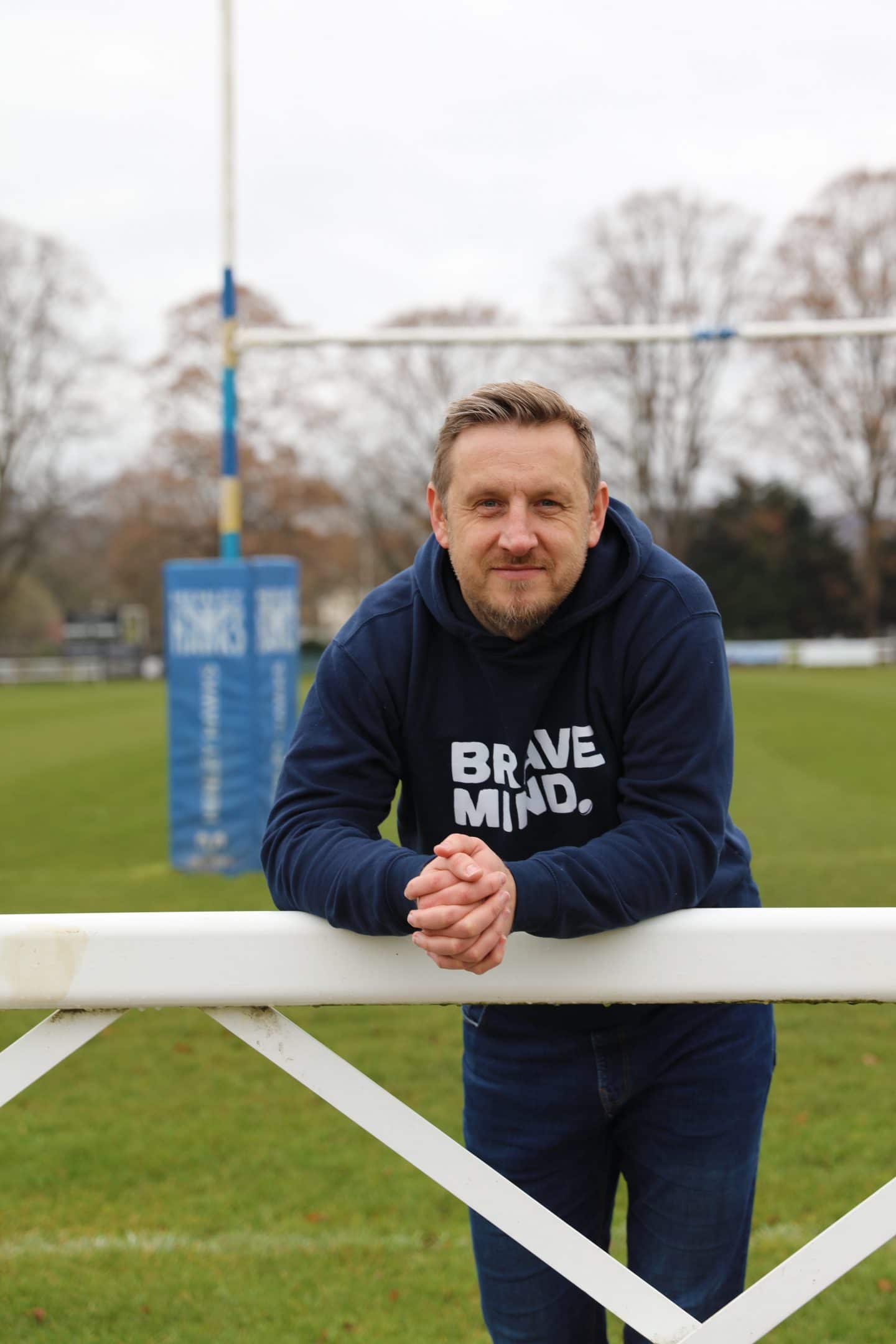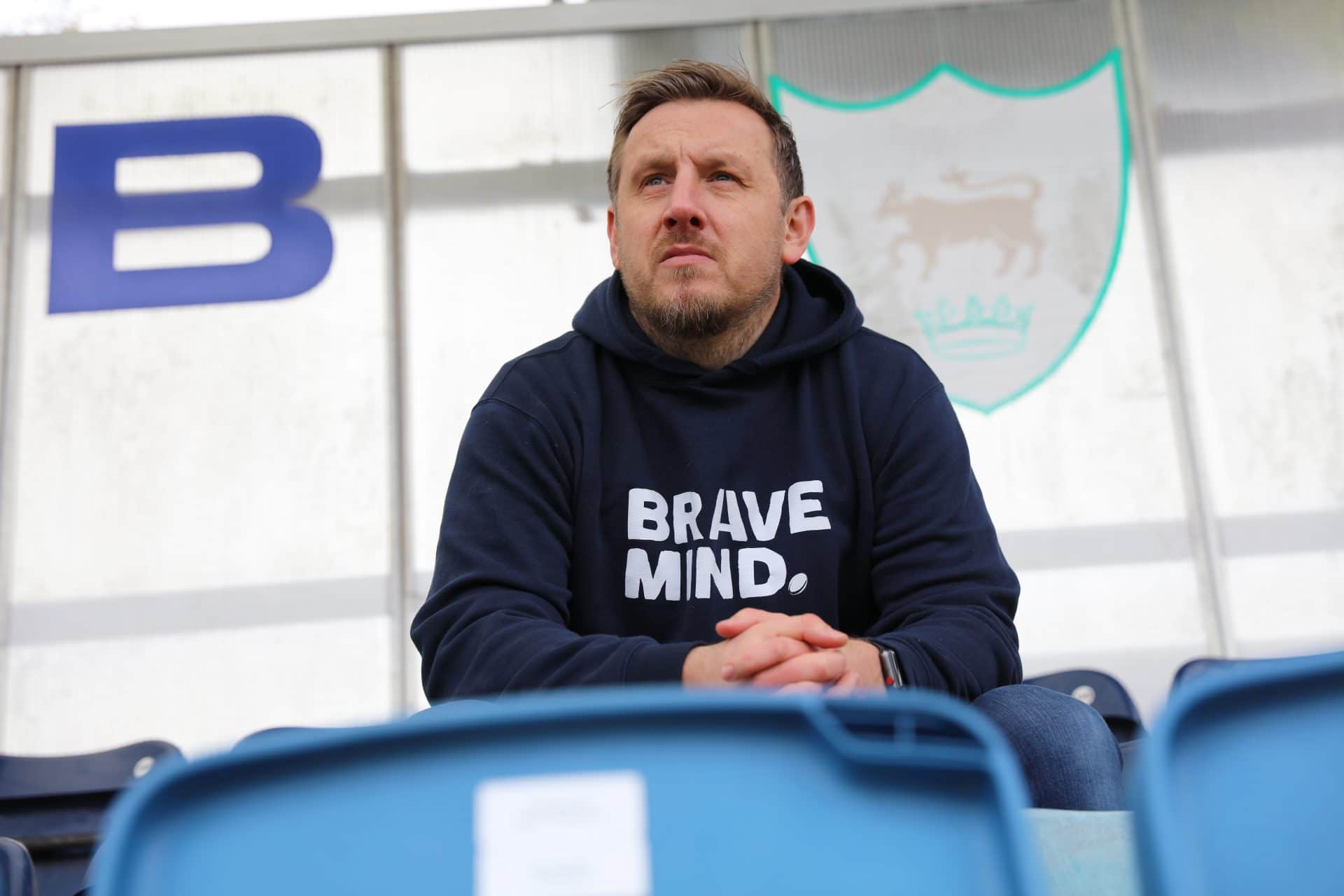Brave Mind: the brave story behind the rugby mental health organisation
Mental Health
Simon Trower, the founder of rugby mental health charity Brave Mind, writes for us about his depression and anxiety issues and how reconnecting with the game inspired him to work to help others.
Before I start, this is not a sob-story…this is real life. Ever since I can remember I’ve been a worrier, and experienced different forms of depression and anxiety on and off my whole life.
My earliest memories of it are the classic nursery and school drop-offs, which caused my Mum chaos and stress each morning. I think the worst moment was locking myself in my Mum’s car in the school car park! My poor Mum. This developed throughout my school and college life: worrying about lessons, avoiding away from home trips and any form of social interaction. Looking back at it now, I generally wasn’t very good at life. I was always yearning to be accepted by others. The anxiety and fears I had held me back and affected pretty much everything I did. Did I try to talk to anyone about it? Of course I didn’t. I just carried on trying to be ‘normal’ and putting on a facade. I wonder how different my younger years would’ve been if I had asked for help?
I was in my early twenties when I eventually visited my local GP. Sitting in a waiting room trying to find the words…what would I say to them? That day, I walked out of the surgery with a prescription for anti-depressants and a feeling of walking into the unknown with no other option.
Fast forward a few years and I found myself still in the same predicament. Avoiding social situations, burying my head in the sand, and generally not addressing the elephant in the room. Who was I and why was I like this? Relationships suffered, my behaviour was erratic, irrational, and unacceptable. I hurt those close to me. I was a mess, and my life had spiralled out of control. I was in a very dark place and at the time I felt there was no way out. I will be forever sorry for the hurt I caused.
Rugby had always been a ‘release’ for me. A time where I could forget everything that was going on in my life. I could just focus on playing and enjoying switching off. This was obviously a temporary fix, putting a plaster on a broken arm. I was drinking more and had switched off my emotional connection with all friends and family. I didn’t care about anything, or the consequences involved with my actions. I was a broken man.
Eventually, I was referred to a Clinical Psychologist. An avenue I hadn’t previously gone down. Over the course of a couple of years, I changed medication – which came with its own troubles! – and attended several sessions which I found very difficult. The drive to and from them were emotionally and physically draining, as the sessions spent hours digging into areas that I just didn’t want to explore. Throughout my life I had always tried to find an excuse for my depression and anxiety. Trying to pinpoint something and/or someone that explained why I was feeling like that. This was a turning point. Changing my mindset and personal acceptance. As the dark times turned lighter, I started to accept who I was. Life started to gradually improve. Working with my psychologist, we started a plan on rebuilding my life…small but positive steps to a brighter future.

I had missed rugby a lot, having had to retire at an early age due to a back injury. Rugby was my life growing up. Every week spent at Henley Rugby Club with my friends and family. These memories I will cherish. However, once I stopped playing my back injury just added to my poor mental health with the addition of painful episodes on and off. I decided to walk away from the game and disconnect. I started to dislike everything associated with the sport!
Having been away from the game for some time, I decided to volunteer at my local club, Maidenhead. I found myself helping support the men’s senior squad. I loved it. Being back in the ‘rugby environment’ again but with a totally different mindset. I felt confident and wanted to help. Anyway, after a successful first season with the 2nd XV, I realised that coaching wasn’t for me. I enjoyed supporting the players around mental performance, trying to work together to get the best out of them individually and as a team. Over the course of my experience at Maidenhead, I met some great people. One person specifically stood out. A young player called Michael Guida. Michael joined the club as a new recruit. He didn’t really know many people but always came across as a happy and confident individual. The more I got to know him, the more his personal story resonated with me and inspired me. He had and was experiencing poor mental health but was so open and honest about his journey. The vulnerability and bravery he showed still inspires me to this day. He’d left university, he’d stopped playing a sport he loved, and he’d found himself in a dark place. Michael’s story made me think….why isn’t a rugby club an environment where we can openly talk about our mental health?
Unfortunately, the pandemic hit our shores in early 2020 and changed our lives forever. I had time to think. I needed a purpose beyond my friends & family. I wanted to try to make a difference. How could I combine my love and passion for rugby and combine it with my personal mental health journey to help others.
In the autumn of 2020, Brave Mind was born.
The first step for me was to surround myself with the right people with the skill set and expertise who could advise and guide me in the areas of mental health & rugby. What is currently happening? How can I help? What could I develop to educate and help change the narrative. The next step I decided to do was to attend an online Mental Health First Aid course delivered by MHFA England. This was such a worthwhile experience. It only confirmed to me that I wanted to learn more…and quickly!
For me, awareness of a cause is great…. but taking action is greater. My vision and mission for Brave Mind has always been around this statement. Getting into action, working with rugby clubs and schools to put mental health at the heart of their community. I want to make talking about and supporting each other with mental health the norm.
Since we received our charitable status in February 2021, we’ve spent time developing mental health programmes to help drive education, create support networks and more importantly, prevention. Prevention is a key focus for us moving forward. Starting the conversation at an earlier age can only help future generations. We want to use rugby and / or sport in general to help introduce the topic of mental health & well-being which in turn will undoubtedly promote positive physical well-being.
If we can strike a balance of addressing serious mental health topics whilst demonstrating that there is light at the end of the tunnel, then I’ll be happy. If I can prevent one suicide, I would’ve done my job.
I can’t change my past however I can try to shape my future.
Trending

Join The Book of Man
Sign up to our daily newsletters to join the frontline of the revolution in masculinity.

















